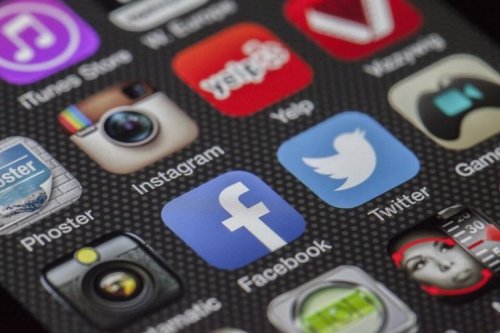Why do We Believe Fake News?

These days, we’re experiencing an epidemic of false news reports and half-truths, otherwise known as “fake news”. Misinformation is the order of the day, and we don’t know whether to believe the news or not. But people need information, and we want real information, especially if it matches our beliefs. Even so, there’s more and more fake news every day.
To understand this phenomenon, we can turn to the psychology of motivation. In addition to having the conscious desire to obtain information that is true, we have other unconscious motivations that make us try to (at least) check our beliefs. In this way, people will accept messages that satisfy these motivations as true, even when they’re false. The reverse can also happen. We can reject information because it doesn’t match our beliefs, even if it’s true.

The need for cognitive closure
One of our motivations is the need for cognitive closure, which is related to uncertainty. When this need is activated, people feel trapped by simplistic messages that affirm absolute truths. As if that weren’t enough, we all have this need to a greater or lesser degree that can increase the need for closure, even in situations that imply disorder and generate uncertainty.
An example of this is a simplistic message that says immigrants are responsible for all the social problems we have. This message divides the world into good and bad people. We are good and immigrants are bad. It also provides a “scapegoat” for our problems, giving us a cause to blame our problems on. That being the case, people are more likely to believe and accept simplistic messages without a lot of scrutiny.
The need for specific results
Similarly, people also believe messages that affirm that a specific thing is possible if those messages are consistent with what they want to believe. However, we can’t believe anything and everything just because we think a certain way.
When the fake news is too outrageous, such as saying that Barack Obama was a member of the Ku Klux Klan, and contradicts what we know or what we believe to be reasonable, people will most likely reject it, even if provides a specific result.
Despite what’s been seen, a lack of knowledge can make people accept even the most extravagant news. Several studies have shown that the most educated and elderly people are less vulnerable to fake news. This is because they have more resources in terms of critical capacity when it comes to labeling news as true or false.

Fake news reports
In cases where a lack of knowledge predominates, what we usually do is trust the people that we consider experts. When your car doesn’t run, you call a trusted mechanic. When you get sick, you visit a doctor you trust.
In the past, for most informational society, politics, and world-related issues, a recurrence of respectable social institutions (such as a government agency, a congressional representative, the president, or mass media sources) enjoyed control over reliability and they were widely trusted.
But those times have changed, and neither the government nor the media offers the confidence of yesteryear. The recent crisis and cases of corruption have contributed to the fact that people don’t trust them as much anymore. Faced with this lack of confidence in the “mainstream” media, people are looking for other sources of information that satisfy the need for closure and specific results.

A lot of fake news
The advances of the Internet and the emergence of social networks have also contributed to our lack of confidence in experts and in the increase of fake news. These confusing times we live in, characterized by rapid changes and growing agitation (for example, the rise of Asian powers such as China and India, terrorist groups, economic instability, the refugee crisis, etc.) have made us need updated information. We want to know what’s happening the minute it happens.
This demand, together with the vacuum created for disconnecting from information sources, has opened the door to new news sources, particularly on the Internet and through social networks. These new sources, over which there’s little or no control and that are motivated or tempted to change people’s political opinions, tend to be manipulative.
Whatever the remedy, the current misinformation plague is a cause for concern, requiring and justifying an effort from social institutions aimed at restoring their tarnished credibility.
These days, we’re experiencing an epidemic of false news reports and half-truths, otherwise known as “fake news”. Misinformation is the order of the day, and we don’t know whether to believe the news or not. But people need information, and we want real information, especially if it matches our beliefs. Even so, there’s more and more fake news every day.
To understand this phenomenon, we can turn to the psychology of motivation. In addition to having the conscious desire to obtain information that is true, we have other unconscious motivations that make us try to (at least) check our beliefs. In this way, people will accept messages that satisfy these motivations as true, even when they’re false. The reverse can also happen. We can reject information because it doesn’t match our beliefs, even if it’s true.

The need for cognitive closure
One of our motivations is the need for cognitive closure, which is related to uncertainty. When this need is activated, people feel trapped by simplistic messages that affirm absolute truths. As if that weren’t enough, we all have this need to a greater or lesser degree that can increase the need for closure, even in situations that imply disorder and generate uncertainty.
An example of this is a simplistic message that says immigrants are responsible for all the social problems we have. This message divides the world into good and bad people. We are good and immigrants are bad. It also provides a “scapegoat” for our problems, giving us a cause to blame our problems on. That being the case, people are more likely to believe and accept simplistic messages without a lot of scrutiny.
The need for specific results
Similarly, people also believe messages that affirm that a specific thing is possible if those messages are consistent with what they want to believe. However, we can’t believe anything and everything just because we think a certain way.
When the fake news is too outrageous, such as saying that Barack Obama was a member of the Ku Klux Klan, and contradicts what we know or what we believe to be reasonable, people will most likely reject it, even if provides a specific result.
Despite what’s been seen, a lack of knowledge can make people accept even the most extravagant news. Several studies have shown that the most educated and elderly people are less vulnerable to fake news. This is because they have more resources in terms of critical capacity when it comes to labeling news as true or false.

Fake news reports
In cases where a lack of knowledge predominates, what we usually do is trust the people that we consider experts. When your car doesn’t run, you call a trusted mechanic. When you get sick, you visit a doctor you trust.
In the past, for most informational society, politics, and world-related issues, a recurrence of respectable social institutions (such as a government agency, a congressional representative, the president, or mass media sources) enjoyed control over reliability and they were widely trusted.
But those times have changed, and neither the government nor the media offers the confidence of yesteryear. The recent crisis and cases of corruption have contributed to the fact that people don’t trust them as much anymore. Faced with this lack of confidence in the “mainstream” media, people are looking for other sources of information that satisfy the need for closure and specific results.

A lot of fake news
The advances of the Internet and the emergence of social networks have also contributed to our lack of confidence in experts and in the increase of fake news. These confusing times we live in, characterized by rapid changes and growing agitation (for example, the rise of Asian powers such as China and India, terrorist groups, economic instability, the refugee crisis, etc.) have made us need updated information. We want to know what’s happening the minute it happens.
This demand, together with the vacuum created for disconnecting from information sources, has opened the door to new news sources, particularly on the Internet and through social networks. These new sources, over which there’s little or no control and that are motivated or tempted to change people’s political opinions, tend to be manipulative.
Whatever the remedy, the current misinformation plague is a cause for concern, requiring and justifying an effort from social institutions aimed at restoring their tarnished credibility.
This text is provided for informational purposes only and does not replace consultation with a professional. If in doubt, consult your specialist.







